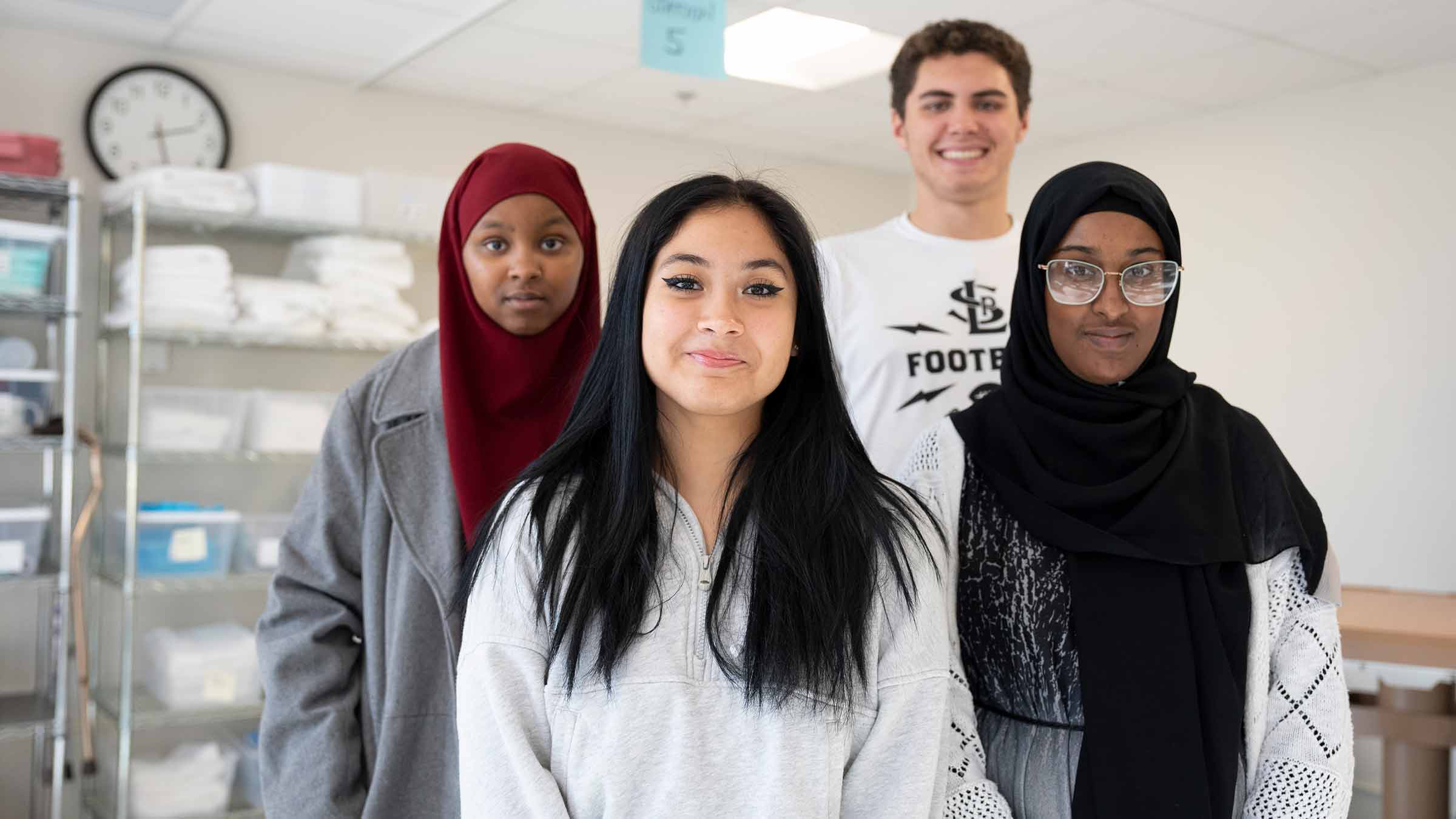
Over the last 18 months, Greater Twin Cities United Way has been listening as our community speaks to the youth experience during the pandemic. Young people have been resilient, but many have also experienced isolation and devastating disruption due to COVID-19, distance learning and a summer of high-profile gun violence. At our latest Community Connection Series event, we amplified this message of resiliency, focusing on innovative approaches to youth mental health and wellbeing.
Three leaders in our community — Amina Salad, After School Program Leader at WellShare International; Maria Padilla, Family Educator, Centro Tyrone Guzman; and Carolina De Los Rios, Program Officer, Mental Health and Suicide Prevention, Greater Twin Cities United Way — each shared their own unique perspective and solutions on how to support youth, both now and into the future.
United Way invests in nearly 100 local nonprofit partners doing incredible work to support the mental health and wellbeing of young people in our community. Many of the organizations in our Career and Future Readiness portfolio provide programming that center and empower youth voice and reflects the cultural and individual identities of young people.
During the early months of COVID-19, United Way granted $350,000 to community-based organizations to address urgent student needs in St. Paul’s North End and Minneapolis’s Phillips/Ventura Village neighborhoods. To inform the direction of these funds, we spoke directly with community members. Mental health support for young people and families was the most consistent theme we heard.
Additionally, United Way’s 211 resource helpline and suicide prevention lifeline – critical services to our community – provide insight and timely data to inform our Community Impact strategy. For example, we know that about 1 in 10 calls to the suicide prevention lifeline come from young people under the age of 15. Informed by these multiple community inputs, United Way plays in a critical role in identifying gaps in the system and advocating for long-term, sustainable change through advocacy efforts.
“The past 18 months were difficult to say the least,” said Amina Salad, who works closely with young people through youth-powered wellness programming at WellShare International, a United Way nonprofit partner that’s mission is the partner with diverse communities to promote health and well-being. “There is no one experience that is shared among youth. Each one has their own unique experience,” she said. “To ensure their engagement and that they’re interested, programs for youth need to be designed by youth.”
Along with listening to youth, panelists highlighted the importance of culturally responsive programming. Maria Padilla shared the success of the Circulos de Seguridad program at Centro Tyrone Guzman that focuses on supporting adults to be open and understanding with their children. “We need a staff that has the same cultural background as families, who can understand their challenges and opportunities,” Maria reflected. A culturally responsive environment, Maria shared, is what teens in her community are looking for “to find a place where they feel connected and they feel loved.”
Supporting youth is the job of our entire community, and a connected community response starts with each of us individually adjusting how we see and support youth and expands to include a network of coordinated support between schools, out-of-school time providers, families and others who play a role in the lives of young people. According to Carolina De Los Rios, “COVID exacerbated something that was already happening in our community. So the response has to be from the community.”